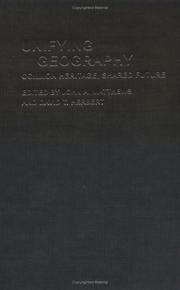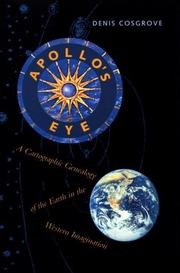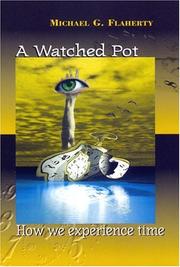| Listing 1 - 10 of 83 | << page >> |
Sort by
|
Book
ISBN: 1281990574 9786611990572 3110210630 9783110210637 9781281990570 6611990577 9783110200256 3110200252 Year: 2008 Publisher: Berlin New York De Gruyter
Abstract | Keywords | Export | Availability | Bookmark
 Loading...
Loading...Choose an application
- Reference Manager
- EndNote
- RefWorks (Direct export to RefWorks)
Alle reden von Orientierung, aber seit Kant sind kaum Versuche gemacht worden, zu sagen, was das ist: Orientierung. Sie ist das Alltäglichste, mit dem wir zu tun haben, das Erste, von dem alles ausgeht, und das Letzte, zu dem wir zurückkommen, und als solches eine Frage der Philosophie. In Auseinandersetzung mit den großen Entwürfen der Philosophie klärt Werner Stegmaier die Bedingungen und Strukturen der alltäglichen Orientierung, in die auch sexuelle, politische, religiöse, ethische Orientierungen eingebettet sind, und schafft der Philosophie dabei neue Grundlagen. Geklärt werden die Bedingungen der Möglichkeit der Orientierung überhaupt, die Bedingungen der Orientierung an anderer Orientierung in Interaktion und Kommunikation, die Bedingungen der Orientierung in besonderen Orientierungssystemen wie der Ökonomie, den Massenmedien, der Politik, des Rechts, der Wissenschaft, der Kunst und der Religion, die Bedingungen der moralischen Orientierung und ihrer Selbstreflexion in der ethischen Orientierung, die Bedingungen der Weltorientierung in der globalisierten Kommunikation und schließlich die Bedingungen der Metaphysik, des Absehens von der Orientierung in der Orientierung. Die Philosophie der Orientierung schließt mit der Bedeutung des Todes für die Orientierung. Am Anfang stehen Vororientierungen zu den Bedingungen der Möglichkeit einer Philosophie der Orientierung, dem Vorkommen der Orientierung bei Tieren, Pflanzen und Teilchen und ihrer Entwicklung beim Menschen und zur Evolution des philosophischen Begriffs der Orientierung. Die Philosophie der Orientierung reicht weit über die Philosophie hinaus und bezieht auch eine Vielzahl von Fachwissenschaften ein. Sie hat dadurch zugleich Handbuch-Charakter. Sie wird künftig das Referenzwerk für alle philosophische Fragen der Orientierung sein.
Orientation (Psychology) --- Philosophy. --- Balance. --- Decision. --- Orientation. --- Paradoxes. --- Plausibility.

ISBN: 1134405138 1280048077 0203352572 020361139X 9780203611395 9780415305433 0415305438 9780415305440 0415305446 9786610048076 661004807X 0415305446 0415305438 9781134405138 9781280048074 9780203352571 9781134405084 9781134405121 0203342801 113440512X 9780203342800 Year: 2004 Publisher: London New York, NY Routledge
Abstract | Keywords | Export | Availability | Bookmark
 Loading...
Loading...Choose an application
- Reference Manager
- EndNote
- RefWorks (Direct export to RefWorks)
Through its identification of unifying themes, this book will provide students with a meaningful framework through which to understand the nature of the geographical discipline.
Geography --- Geographical perception. --- Environmental perception --- Maps, Mental --- Mental maps --- Perceptual cartography --- Perceptual maps --- Perception --- Orientation (Psychology) --- Space perception --- Philosophy.

ISBN: 0801875080 9780801875083 0801864917 9780801864919 Year: 2001 Publisher: Baltimore Johns Hopkins University Press
Abstract | Keywords | Export | Availability | Bookmark
 Loading...
Loading...Choose an application
- Reference Manager
- EndNote
- RefWorks (Direct export to RefWorks)
"Well written, copiously illustrated, and with an excellent section of notes at the end of each chapter, the author and publishers of this book are to be commended." -- Geography.
Geographical perception. --- Globes. --- Cartographic materials --- Orbs --- World maps --- Environmental perception --- Maps, Mental --- Mental maps --- Perceptual cartography --- Perceptual maps --- Perception --- Orientation (Psychology) --- Space perception

ISBN: 1315538776 1134955596 1134955529 9781134955527 9781134955596 9781134955664 1134955669 9781315538778 0415944848 9780415944847 0415944856 9780415944854 0415944848 9780415944847 Year: 2003 Publisher: New York
Abstract | Keywords | Export | Availability | Bookmark
 Loading...
Loading...Choose an application
- Reference Manager
- EndNote
- RefWorks (Direct export to RefWorks)
Geographical perception. --- Human territoriality. --- Territorial behavior --- Territoriality, Human --- Ethnology --- Human geography --- Spatial behavior --- Environmental perception --- Maps, Mental --- Mental maps --- Perceptual cartography --- Perceptual maps --- Perception --- Orientation (Psychology) --- Space perception
Book
ISBN: 0813058562 0813057450 0813066344 9780813057453 9780813066349 9780813058566 Year: 2020 Publisher: Gainesville
Abstract | Keywords | Export | Availability | Bookmark
 Loading...
Loading...Choose an application
- Reference Manager
- EndNote
- RefWorks (Direct export to RefWorks)
"This volume highlights the diversity and complexity of western Mexico's pre-Hispanic cultures and argues that the region was more similar than many researchers have believed to the rest of the Mesoamerican world"--
Indians of Mexico --- Time perception --- Chronometry, Mental --- Duration, Intuition of --- Intuition of duration --- Mental chronometry --- Time --- Time, Cognition of --- Time estimation --- Orientation (Psychology) --- Perception --- Antiquities. --- History. --- Mexico
Book
ISBN: 9004280200 9004280197 Year: 2018 Publisher: Leiden, Netherlands : Koninklijke Brill nv,
Abstract | Keywords | Export | Availability | Bookmark
 Loading...
Loading...Choose an application
- Reference Manager
- EndNote
- RefWorks (Direct export to RefWorks)
Timing and Time Perception: Procedures, Measures, and Applications is a one-of-a-kind, collective effort to present the most utilized and known methods on timing and time perception. Specifically, it covers methods and analysis on circadian timing, synchrony perception, reaction/response time, time estimation, and alternative methods for clinical/developmental research. The book includes experimental protocols, programming code, and sample results and the content ranges from very introductory to more advanced so as to cover the needs of both junior and senior researchers. We hope that this will be the first step in future efforts to document experimental methods and analysis both in a theoretical and in a practical manner. Contributors are: Patricia V. Agostino, Rocío Alcalá-Quintana, Fuat Balcı, Karin Bausenhart, Richard Block, Ivana L. Bussi, Carlos S. Caldart, Mariagrazia Capizzi, Xiaoqin Chen, Ángel Correa, Massimiliano Di Luca, Céline Z. Duval, Mark T. Elliott, Dagmar Fraser, David Freestone, Miguel A. García-Pérez, Anne Giersch, Simon Grondin, Nori Jacoby, Florian Klapproth, Franziska Kopp, Maria Kostaki, Laurence Lalanne, Giovanna Mioni, Trevor B. Penney, Patrick E. Poncelet, Patrick Simen, Ryan Stables, Rolf Ulrich, Argiro Vatakis, Dominic Ward, Alan M. Wing, Kieran Yarrow, and Dan Zakay.
Time perception. --- Time --- Psychological aspects. --- Chronometry, Mental --- Duration, Intuition of --- Intuition of duration --- Mental chronometry --- Time, Cognition of --- Time estimation --- Orientation (Psychology) --- Perception --- Cognition & cognitive psychology --- Circadian rhythms. --- Decision making --- Reaction time. --- Time measurements. --- Mathematical models.
Book
ISBN: 9780253032782 0253032784 0253032822 0253032830 9780253032829 9780253032867 9780253032843 0253032849 0253032865 9780253035189 025303518X Year: 2018 Publisher: Bloomington, Indiana
Abstract | Keywords | Export | Availability | Bookmark
 Loading...
Loading...Choose an application
- Reference Manager
- EndNote
- RefWorks (Direct export to RefWorks)
"Preserving, pausing, slowing, rewinding, replaying, reactivating, reanimating ...Has the ability to manipulate video game timelines altered our cultural conceptions of time? Video game scholar Christopher Hanson argues that the mechanics of time in digital games have presented a new model for understanding time in contemporary culture, a concept he calls game time. Multivalent in nature, game time is characterized by apparent malleability, navigability, and possibility while simultaneously being highly restrictive and requiring replay and repetition. Hanson demonstrates that compared to analog tabletop games, sports, film, television, and other forms of media, the temporal structures of digital games provide unique opportunities to engage players with liveness, causality, potentiality, and lived experience that create new ways of experiencing time. Hanson's argument features comparative analysis of key video games titles including Braid, Quantum Break, Battle of the Bulge, Prince of Persia: The Sands of Time, Passage, The Legend of Zelda: The Ocarina of Time, Lifeline, and A Dark Room."--Publisher's website.
Video games --- Time perception. --- Digital game studies. --- Psychological aspects. --- Chronometry, Mental --- Duration, Intuition of --- Intuition of duration --- Mental chronometry --- Time --- Time, Cognition of --- Time estimation --- Orientation (Psychology) --- Perception --- Jeux vidéo --- Perception du temps. --- Aspect psychologique.
Book
ISBN: 0813552125 9780813552125 9780813551814 9780813551821 0813551811 081355182X Year: 2012 Volume: 2 Publisher: New Brunswick, NJ
Abstract | Keywords | Export | Availability | Bookmark
 Loading...
Loading...Choose an application
- Reference Manager
- EndNote
- RefWorks (Direct export to RefWorks)
Scholars in the humanities have become increasingly interested in questions of how space is produced and perceived-and they have found that this consideration of human geography greatly enriches our understanding of cultural history. This "spatial turn" equally has the potential to revolutionize Jewish Studies, complicating familiar notions of Jews as "people of the Book," displaced persons with only a common religious tradition and history to unite them. Space and Place in Jewish Studies embraces these exciting critical developments by investigating what "space" has meant within Jewish culture and tradition-and how notions of "Jewish space," diaspora, and home continue to resonate within contemporary discourse, bringing space to the foreground as a practical and analytical category. Barbara Mann takes us on a journey from medieval Levantine trade routes to the Eastern European shtetl to the streets of contemporary New York, introducing readers to the variety of ways in which Jews have historically formed communities and created a sense of place for themselves. Combining cutting-edge theory with rabbinics, anthropology, and literary analysis, Mann offers a fresh take on the Jewish experience.
Place (Philosophy) --- Geographical perception in literature. --- Geographical perception. --- Space --- Philosophy --- Environmental perception --- Maps, Mental --- Mental maps --- Perceptual cartography --- Perceptual maps --- Perception --- Orientation (Psychology) --- Space perception --- Religious aspects --- Judaism. --- Space - Religious aspects - Judaism.

ISBN: 0814728162 0814728693 0585425027 9780585425023 0814726879 9780814726877 9780814728697 Year: 2022 Publisher: New York, NY
Abstract | Keywords | Export | Availability | Bookmark
 Loading...
Loading...Choose an application
- Reference Manager
- EndNote
- RefWorks (Direct export to RefWorks)
Time, it has been said, is the enemy. In an era of harried lives, time seems increasingly precious as hours and days telescope and our lives often seem to be flitting past. And yet, at other times, the minutes drag on, each tick of the clock excruciatingly drawn out. What explains this seeming paradox?. Based upon a full decade's empirical research, Michael G. Flaherty's new book offers remarkable insights on this most universal human experience. Flaherty surveys hundreds of individuals of all ages in an attempt to ascertain how such phenomena as suffering, violence, danger, boredom, exhilarat
Time perspective. --- Time perception. --- Future time perspective --- Perspective, Time --- Timetable --- Chronometry, Mental --- Duration, Intuition of --- Intuition of duration --- Mental chronometry --- Time --- Time, Cognition of --- Time estimation --- Orientation (Psychology) --- Perception
Book
ISBN: 1317118669 1317118650 1280876905 9786613718211 1409429725 9781409429722 1409429717 9781409429715 9781409429715 1315587890 9781317118664 9781317118657 9781280876905 6613718211 Year: 2012 Publisher: Farnham Ashgate Publishing Ltd
Abstract | Keywords | Export | Availability | Bookmark
 Loading...
Loading...Choose an application
- Reference Manager
- EndNote
- RefWorks (Direct export to RefWorks)
Describing the ways landscapes are perpetually shaped by the engagements and practices of their inhabitants, this innovative volume develops a processual approach to both perception and imagination. But it also brings out the ways in which these processes, animated by the hopes and dreams of inhabitants, increasingly come into conflict with the strategies of external actors empowered to impose their own, ready-made designs upon the world. With a focus on the temporal and kinaesthetic dynamics of imagining, Imagining Landscapes foregrounds both time and movement in understanding how past, prese
Landscape assessment. --- Landscape changes. --- Geographical perception. --- Environmental perception --- Maps, Mental --- Mental maps --- Perceptual cartography --- Perceptual maps --- Perception --- Orientation (Psychology) --- Space perception --- Change, Landscape --- Geomorphology --- Assessment, Landscape --- Landscape evaluation --- Landscape perception --- Perception, Landscape --- Human ecology --- Land use --- Landscape protection
| Listing 1 - 10 of 83 | << page >> |
Sort by
|

 Search
Search Feedback
Feedback About UniCat
About UniCat  Help
Help News
News